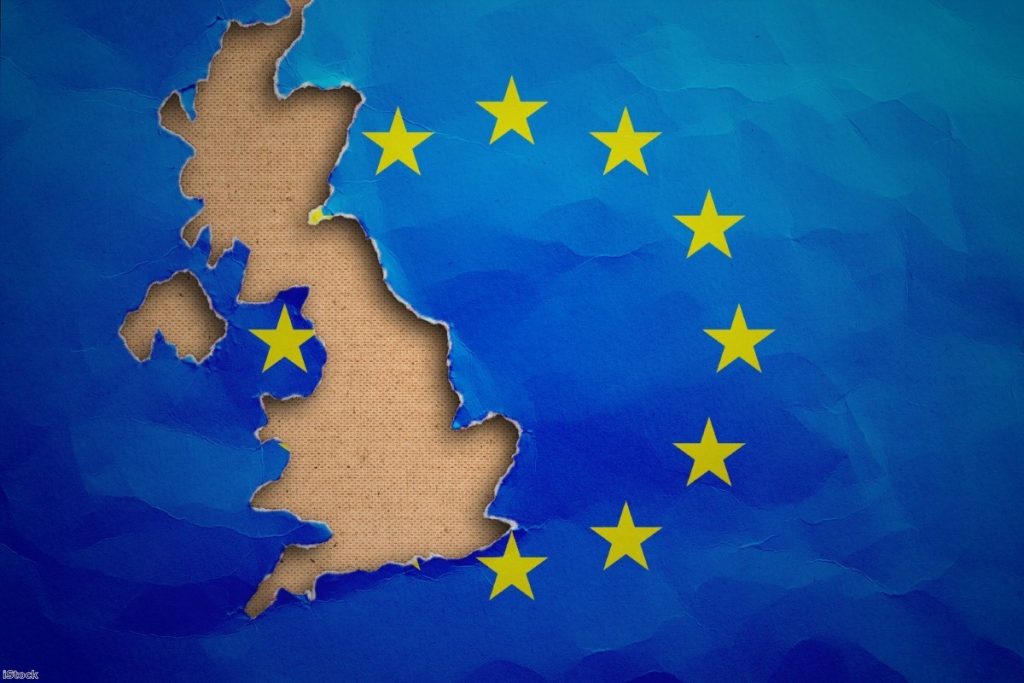Britain’s exit from the European Union is still an issue that plays to our hearts and guts far more than to our brains or wallets.
So many of us still wear the labels – be that of Leave or Remain – of a referendum that happened six and a half years ago. I know I need to get my own house in order on this. I have now learnt (you’ll be delighted to hear) to tell myself to calm down, put differences to one side and seek to work to improve the situation.
As families and businesses stare into the financial abyss, utterly terrified about their futures, the last thing they need is politicians getting self-indulgent, jumping into culture war trenches, and obsessing about the outcome of a referendum that happened in 2016.
The overarching aim of any government has to be to rescue our people from a cost-of-living catastrophe which threatens to cause widespread hardship and misery.


Many of the reasons we face high inflation and financial pressures are global in nature, but some are domestic and self-inflicted. The Conservatives’ September budget has clearly done abiding harm to our economy, and so has the nature of the deal we signed with Europe in 2019/20. If we care about tackling the cost of living, we cannot ignore the European shaped Elephant in the room.
You may remember that we did not leave the EU with ‘no deal’ after all, but we absolutely did leave with a very bad deal. Bad for Europe, but even worse for us. Our trading arrangement with the largest market in the world – a market that is on our doorstep – does not entail tariffs, so that’s good at least. The deal does, however, leave our exporters and importers with huge increased costs mostly due to new red tape. This means that British companies who export are – at best – seeing their margins eroded because their costs have shot up. More likely though they are just exporting a lot less because it’s no longer worth their while and they cannot pass on these increased costs to their customers. Meanwhile, importers are seeing their costs rise enormously which is a significant contributor to rising prices.
In other words, the bad deal we have with Europe is binding our businesses with bureaucracy. It is slowing growth and it is pushing up inflation.
It might be emotionally painful to think about getting a better deal with Europe, but it will be far more painful for families and businesses if we don’t.
And ‘getting a better deal with Europe’ might cause emotional pain for all sides. We have to be realistic about the prospects of the UK’s immediate return to the EU, or the Single Market. Right now, these things are simply not on the table – because trust has been damaged, on both sides, by years of haggling.
This will be a difficult pill to swallow for some. For others, the admission that the deal we currently have with Europe is actively doing avoidable harm to our economy will be equally hard to concede.
To both sides I say this: ‘Tough luck!’. Seriously, how can MPs speak in the House of Commons about wanting to help the British people through this crisis whilst not pulling one of the main levers available to them that would make a difference?
Seeking a better deal with Europe would be a sign that the UK was finally interested in taking a pragmatic approach, that all sides were willing to put the years of division behind us and acting rationally in the national interest.
The recent trade deals with Australia and New Zealand, which will do so much harm to British farmers, are a microcosm here. They remind us that trade deals are absolutely a good thing in principle, but that individually they can be terrible in practice. When I criticize the Australia and New Zealand deals, I am not being anti free trade, I am being anti bad deals!
The same applies with our trade deal with Europe.
It’s shameful that Rishi Sunak and the Conservatives persist with their ideological approach to relations with our largest trading partner – an approach which is damaging small businesses, fishermen and farmers all over the country. It’s pathetic.
It would be less awful if we weren’t entering the worst period of stagflation for two generations, but we are. For the Prime Minister to be so hopelessly chicken on this issue when the country desperately needs him to pull every lever available to help rescue families and businesses, is just inexcusable.
It’s time to start having a can-do conversation about the continental shaped elephant in the room. If we move away from the dogmatic approach of the Conservative Government, we have a real opportunity to provide a boost to the economy to the benefit of families in my patch and all over the country. Let’s get a better deal.












